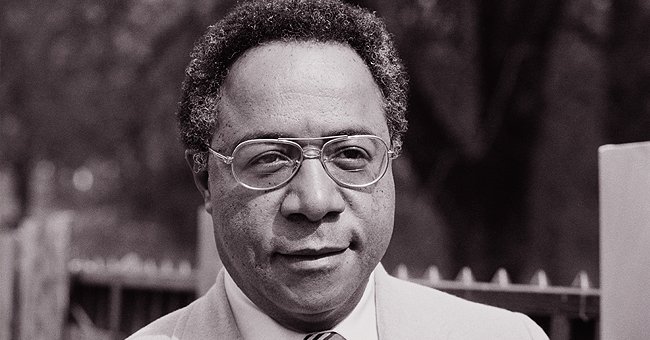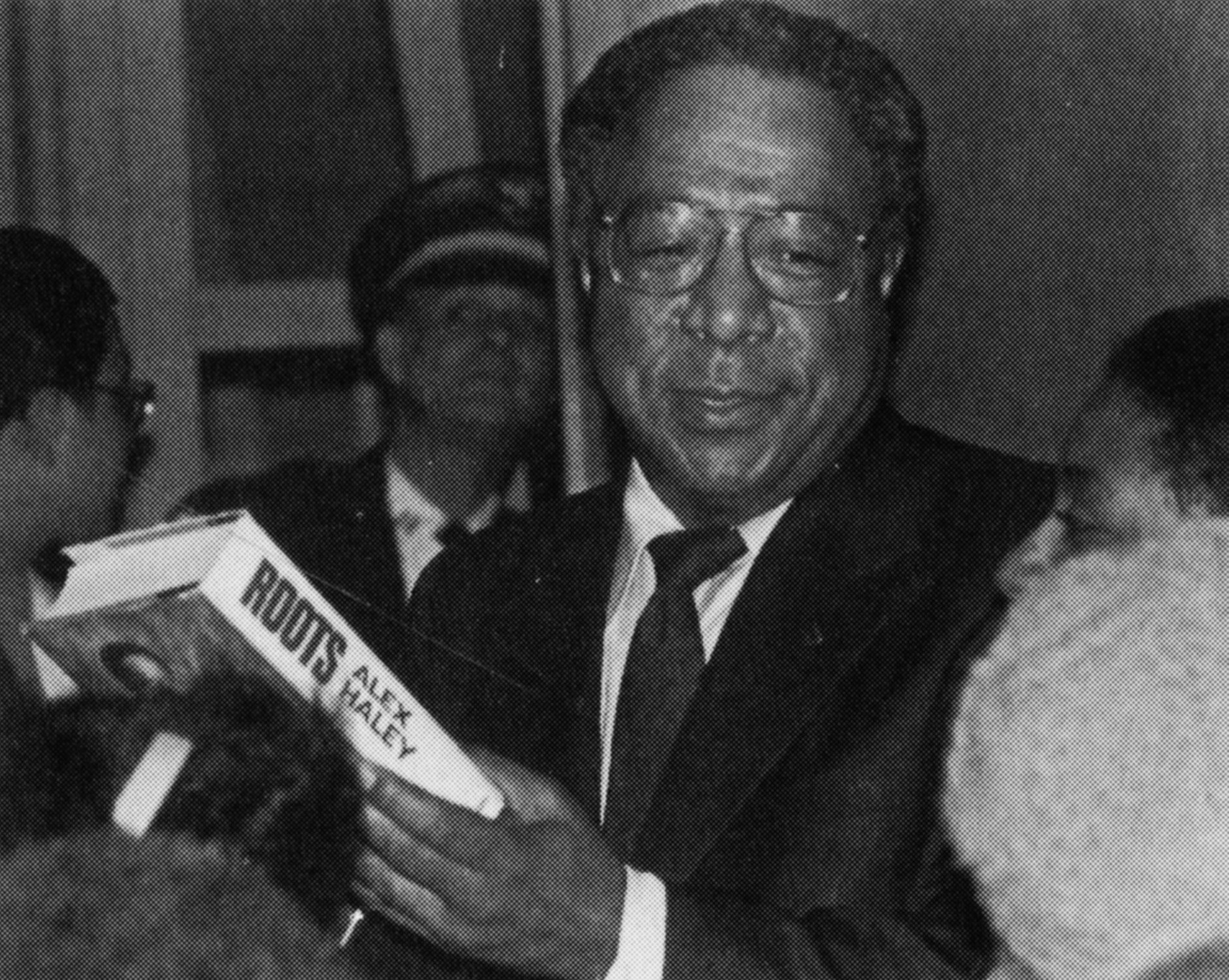
Remembering American Writer Alex Haley –– His Notable Work and Life Milestones
Alex Haley is most famous for his book, “Roots,” which stirred up controversies about racism and slavery. Here’s a look into the career of the man who is often associated with genealogy.
Alex Haley was a writer and he is most popular for the 1967 book, “Roots: The Saga of an American Family” which was later adapted into a miniseries a year after its release.

Alex Haley speaking at University of Texas at Arlington's Texas Hall in 1980. | Photo: University of Texas at Arlington Photograph Collection, CC BY 4.0, Wikimedia Commons Images
Born Alexander Murray Palmer Haley on August 11, 1921, he was the oldest of three sons born to Simon and Bertha Haley.
Haley’s earliest exposure to literature began in his childhood when he listened to his maternal grandmother, Cynthia Palmer, who enjoyed telling her young grandson stories about the family’s ancestry.
Most specifically, Palmer told Haley about one of their ancestors named “Kin-tay” who was sold into slavery alongside some Africans in Maryland.
In 1931, Bertha passed away when Haley was only 10. At 15, he graduated from high school and proceeded to the Elizabeth City State Teachers College in North Carolina. He studied at the college for two years.
Just one year after the release of “Roots,” the book bagged a Special Citation Pulitzer Prize.
By the time Haley was 17, he returned home to inform his father that he was withdrawing from college and this prompted Simon to believe that his son needed to learn discipline.
Simon then convinced Haley to enroll in the military and on May 24, 1939, he began his 20-year service with the United States Guard.
It was during his service in the Military that Haley taught himself the craft of writing stories and soon enough, he started writing short stories. It eventually took eight years for magazines to start accepting his stories.
In 1950, Haley achieved two major milestones in his writing career. First, he was named the Chief Journalist, and second, he made the first commercial sale after selling one of his stories.
In the following year, people became more interested in Haley’s articles and he became quite a famous writer for magazines. In 1956, the writer developed an interest in writing for the Black audience and this further increased his fame among people.
By 1959, Haley retired at the age of 37 after completing his 20 years of service. At the time, he was already married with two teenage kids.
After the completion of his service, Haley and his family moved to New York where he pursued a career in full-time freelance writing.
In the years that followed, he published several articles but the pay was not enough to sustain him and his family. In 1962, things changed for good after an interview he conducted with Miles Davis was published in Playboy Magazine.
The story was a huge success and Haley continued to write for the magazine. During this time, he interviewed several prominent figures including Martin Luther King Jr. and Malcolm X.
A few years after interviewing Malcolm X, Haley published a book, “The Autobiography of Malcolm X” which is considered an international bestseller.
In 1976, he released “Roots,” a part-fictionalized story that was infused with historical tales as well. The book was a huge success and sold millions of copies.
Just one year after the release of “Roots,” the book bagged a Special Citation Pulitzer Prize and was also adapted into a miniseries by ABC. In the book, Haley told the story of his ancestors, and this inspired people’s interest in genealogy and the history of slavery.
However, despite its success, the book was also trailed by controversies, one of which involved the conversation about whether the story was authentic or not.
In the later years of his career, Haley published many other books which were recorded successes in their own right. Altogether, he was an accomplished writer.
On February 10, 1992, the writer died of a heart attack at the age of 70. Twenty-eight years after his death, Haley is still remembered for his legacy in the literary world.
